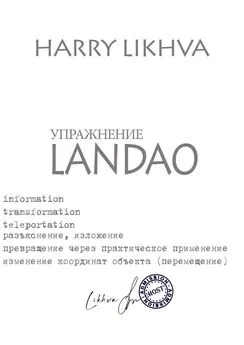Harry Turtledove - Give me back my Legions!
- Название:Give me back my Legions!
- Автор:
- Жанр:
- Издательство:неизвестно
- Год:неизвестен
- ISBN:нет данных
- Рейтинг:
- Избранное:Добавить в избранное
-
Отзывы:
-
Ваша оценка:
Harry Turtledove - Give me back my Legions! краткое содержание
Give me back my Legions! - читать онлайн бесплатно полную версию (весь текст целиком)
Интервал:
Закладка:
In Syria, soldiers always worried about Parthia. If Rome had a real rival, the successor to the Persian Empire was it. Roman armies had come to grief against Parthia. Back around the time Varus was born, Crassus got his force annihilated at Carrhae, and even lost legionary eagles - what greater and more humiliating disgrace was possible? And the Parthian Kings of Kings weren’t afraid to invade the Roman East when they thought they could get away with it.
In Vetera, soldiers - and no one else there mattered - worried about Germany instead. Varus did not find that an improvement. Parthia was a more or less cultured country. The King of Kings and his nobles spoke Greek as a matter of course. They had elegant manners they’d learned from Alexander the Great’s successors while they were beating them. (If the Macedonians had learned their manners from the Persians while they were beating them, Varus didn’t dwell on that.)
Hearing that two German tribes were threatening to go to war with each other over some stolen pigs was not edifying. Neither was the news that some petty German noble - as if there were any other kind! - was raising a row in his tribe by giving a girl previously promised to one suitor to another instead. And that was the kind of thing Varus had to listen to day after day.
He didn’t take long to tire of it. He summoned a meeting of the leading soldiers in Legions XVII, XVIII, and XIX and spoke without preamble: “You already know Augustus sent me here to bring Germany all the way into the Empire. I aim to do that as fast as I can.” Then I’ll go back to Rome and let somebody else take charge of the miserable place.
The assembled officers nodded. Vala Numonius, the cavalry commander, said, “It shouldn’t be too hard, sir. By what I’ve heard since I got here, we’ve softened up the Germans a lot. They’re getting used to our ways. Plenty of their nobles already see lining up with us is the smart way to go. All they need is a show of force, and they’ll roll onto their backs and show their bellies like whipped dogs.”
“Does anyone disagree?” Varus put the question for form’s sake. He’d said what he intended to do, and one of his principal subordinates had declared that the assembled legions could do it. What more did anyone want?
But, to his surprise, an officer named Lucius Eggius said, “I do, sir. The Germans just aren’t that easy. Whenever we cross the Rhine, we own the land where we march and the land where we camp. The rest still belongs to the barbarians.”
“It’s not so bad as that,” Numonius said.
Lucius Eggius set his chin. Even when Varus said, “I should hope not,” Eggius still looked discontented. Varus wondered if the soldier found himself in this gods-forsaken spot because of an unfortunate habit of speaking his mind regardless of whether anybody else wanted to listen to him.
“I think you’re right, sir,” said yet another officer, a prefect named Ceionius. Unlike Lucius Eggius, he knew the words a governor liked to hear. Better yet, he came up with good reasons why Varus was right: “Quite a few of the Germans are learning Latin - “
“The better to spy on us,” Eggius broke in.
“Oh, nonsense,” Ceionius said. “They’re using our coins, too. They buy wine and pottery and jewelry with them, and they spend them among themselves. Little by little, they’re turning into provincials. Once we finish the occupation, give them twenty years and you won’t be able to tell them from Gauls.”
Eggius sent Varus what the governor supposed was meant to be a look of appeal. Somehow, it only made the man seem more stubborn than ever. “Don’t listen to him, sir,” Eggius said earnestly. “If these savages were going to lay down for us - “
“Lie down, you mean.” Now Ceionius interrupted, to point out the other soldier’s bad grammar. Varus, of course, had noticed it on his own. If an officer couldn’t express himself correctly, how were his superiors supposed to take seriously anything he said?
“If they were going to lay down for us,” Lucius Eggius repeated, his chin jutting forward even farther than before, “they would have done it twenty years ago. They’re rough customers - that’s all there is to it. And there are swarms of them in those little villages. Sometimes we beat ‘em when we fight. Sometimes they lick us. If they didn’t, the country on the far side of the Rhine would’ve made a proper province a long time ago.
Several officers drew away from him, as if he carried something catching. And so he did: tactlessness could kill off even a promising career. Varus almost dismissed him from the council. At the last instant, though, he held back, remembering how Augustus had voiced some of the same worries.
“Anyone can do an easy job,” Varus said. “You need uncommon men to handle a harder one. Augustus has decided that we are the men he needs for this particular job. To my way of thinking, that’s a compliment to every one of us and to every single soldier in Legions XVII, XVIII, and XIX. Will anyone tell me I’m wrong there?”
He waited. No one said a word, not even the obstinate Lucius Eggius. Varus had expected nothing different. A bold man could quarrel with a provincial governor. No one had quarreled with Augustus in any serious way for more than thirty years. If you quarreled with Augustus, you lost. Rome had learned that lesson well.
“Since Augustus gave us this job, we’ll find a way to do it,” Varus continued. Nobody disagreed with that, either.
The track wound through the woods. Arminius’ boots squelched in the mud. He slipped and almost fell. He’d traded his Roman caligae - his hobnailed marching sandals - to a farmer for the boots and a meal and a bed. The caligae didn’t fit the farmer very well, but the iron hobnails made them valuable.
Even if Arminius got less traction on bad ground, he preferred his native footgear. He preferred the soft dirt track to a paved Roman highway, too. March on stone from sunup to sundown and your legs felt like stone themselves when you finally stopped for the night.
Arminius also preferred the way the track followed the contours of the land. Roman roads ran straight as stretched strings. If the straight route was bad, the Romans built it up with stones or dug away hillsides. They were as arrogant in their engineering as they were everywhere else.
He tried to explain that to Chariomerus. The other German didn’t get it. “What’s wrong with taking the short way if you can?” he asked.
“How can the gods love anyone who tears up the landscape the way the Romans do?” Arminius returned.
He got only a stare and a shrug from his traveling companion, who said, “If the gods don’t love the Romans, how come they’re so stinking strong?”
That question was good enough to keep Arminius walking in silence for some little while. At last, he said, “To give us foes worth fighting. That must be it. If our enemies were weaklings, what kind of glory would we win by beating them? Not much. They have to be strong, or they wouldn’t make proper enemies.”
Chariomerus grunted. “But what happens if they’re too strong?” he asked. “What happens if they beat us?”
“Then we turn into slaves,” Arminius answered. “So do our mothers and our sisters and our daughters and our sweethearts.”
That made Chariomerus shudder. Arminius had known it would. His folk had a greater horror of slavery for its women than for its men. German minstrels sang of battles that had turned when the women on the side that was losing bared their breasts and warned their men they were about to be enslaved, inspiring the warriors to fight with desperate ferocity. A tribe that could claim hostages from among its neighbors’ noblewomen held those neighbors in a grip stronger than iron.
“We mustn’t lose, then,” Chariomerus said.
“And we won’t.” But Arminius sounded more confident than he felt. Roman influence seemed stronger in Germany than it had when he went off to learn how the legions fought. It was much stronger than it had been when he was a boy. People passed coins - Roman coins - back and forth without even thinking about what they were doing. In his younger days, barter had been king of all. He’d gotten better wine from some of the nobles who had him as a guest than he had as a Roman auxiliary. When people found out he’d fought for the Romans, they wanted to try out bits of Latin on him. If those weren’t the early marks of slavery, what would be?
Dogs barked up ahead. “There’s your father’s steading,” Chariomerus said.
“It’s been a long road,” Arminius replied. “My father’s steading - at last. Here I will stay till I can see my way to avenging the insult Segestes has given me.”
When he and Chariomerus came out into the open, four or five dogs rushed toward them. The big, rough-coated, wolfish beasts growled and snarled and bared their formidable fangs. The Romans had dogs like that.
What herdsman or farmer would want any other kind? But the Romans also had small, fluffy, mild-mannered dogs to keep women and children company. They turned good working dogs into toys. They would do the same with - to - Arminius’ folk if they got the chance.
He shouted at the dogs. He didn’t know if that would prove enough - he’d been away a long time. His hand fell to the hilt of his sword. If they kept coming, he would do what he had to do to keep them from biting him. Chariomerus, perhaps less sure of the animals’ temper, drew his blade and widened his stance so he was ready to strike.
But shouting sufficed. The dogs skidded to a stop. A couple of them - beasts Arminius recognized - cocked their heads to one side. He had to laugh at their expressions: they looked like men trying to remember something. Did they know his voice? His scent?
Something a Roman had told him floated up into his thoughts. There was a Greek poem that had an old dog remembering its master in it. He came home alter years and years away adventuring, and the dog died after it realized who he was.
Arminius didn’t know much about the Greeks. He gathered that the Romans thought them very clever. Since Germans thought the same about Romans, that made these Greeks clever indeed . . . didn’t it? If they were so clever, why didn’t they run things instead of the Romans?
“Hail, Lance. Hail, Speedy,” he said gravely, and scratched the dogs he knew behind the ears. They let him do it, where they would have snapped at a stranger. The other dogs - young ones that had grown up or been born after he went away - eyed Speedy and Lance as if wondering why they would betray a trust like that.
Some Germans were friendly to the Romans. Arminius’ brother was one. And Segestes was another. He always had been. He thought Germany stood to gain more than it lost by coming under the Roman eagle. Arminius had thought he was wrong before. Now the younger man despised any opinion of Segestes’ just because his betrayed fiancée’s father held it.
The commotion from the dogs brought a gray-haired man carrying an axe out to see what caused it. A gray-haired man . . . “Father!” Arminius shouted, and ran to him.
“Arminius!” His father’s name was Sigimerus. He definitely hadn’t been so gray when Arminius went off to learn what he could of Roman fighting. He hadn’t been so stooped, either. He wasn’t an old man, not yet, but the years had a grip on him.
As they embraced, Arminius forgot all about that. “It’s good to see you. It’s good to be home,” he said, and kissed Sigimerus on both cheeks and then on the mouth.
“How is Flavus?” his father asked.
Читать дальшеИнтервал:
Закладка:







